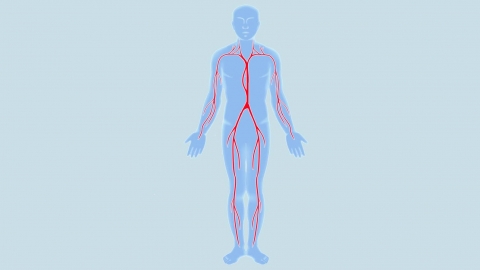What are the effects of adrenaline?
Under normal circumstances, epinephrine is an important hormone secreted by adrenal medullary cells, as well as a sympathomimetic amine drug that directly acts on α- and β-adrenergic receptors. It is available in various dosage forms, including injections and inhalants. The effects of epinephrine include cardiac stimulation, vascular effects, blood pressure elevation, bronchodilation, and enhanced metabolism. A detailed analysis is as follows:

1. Cardiac Stimulation
Epinephrine activates β₁ receptors in the heart, enhancing myocardial contractility, increasing heart rate, accelerating conduction, and increasing cardiac output. These effects help provide adequate blood supply to tissues and organs during stress, meeting their metabolic demands.
2. Vascular Effects
Epinephrine exerts different effects on blood vessels in different regions. Activation of α receptors causes vasoconstriction of the skin, mucous membranes, and visceral blood vessels, while activation of β₂ receptors leads to vasodilation of skeletal muscle vessels and coronary arteries. This differential effect on blood vessels helps redistribute blood flow, ensuring adequate perfusion to vital organs during stress.
3. Blood Pressure Elevation
During low-dose intravenous administration, cardiac output increases while peripheral vascular resistance remains relatively unchanged, resulting in an increase in systolic blood pressure with minimal change in diastolic pressure, thereby widening the pulse pressure. With larger doses, in addition to strong cardiac stimulation, there is intense vasoconstriction of vascular smooth muscle, significantly increasing peripheral resistance and causing simultaneous elevation of both systolic and diastolic blood pressure.
4. Bronchodilation
Epinephrine activates β₂ receptors on bronchial smooth muscle, causing relaxation and relieving bronchospasm. It also inhibits mast cells from releasing histamine and other allergic mediators, reducing bronchial mucosal edema, and effectively alleviating acute bronchial asthma attacks.
5. Metabolic Enhancement
Epinephrine increases the body's metabolic rate and oxygen consumption. By activating lipase, it promotes fat breakdown, increasing free fatty acids in the blood. It also promotes glycogenolysis in the liver, raising blood glucose levels, thus providing additional energy sources for the body.
It is important to maintain a regular routine, ensure adequate sleep, and reduce stress to help regulate bodily functions. Moderate exercise can promote overall health, improve stress resistance, and help regulate epinephrine secretion.








